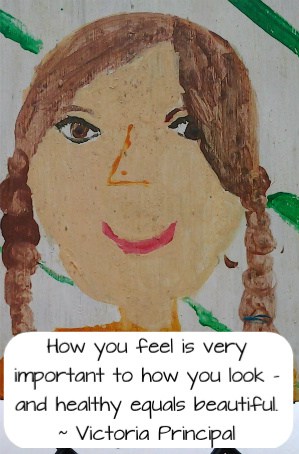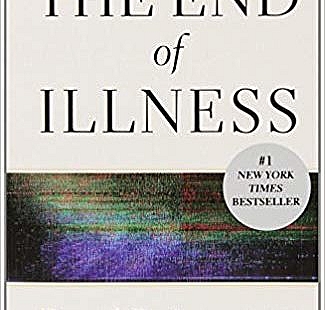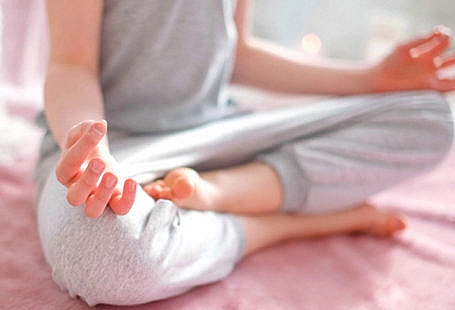 What is menopause, when does menopause start, and what are the signs of perimenopause? Here’s what you need to know about menopause – including tips on coping with menopause symptoms.
What is menopause, when does menopause start, and what are the signs of perimenopause? Here’s what you need to know about menopause – including tips on coping with menopause symptoms.
I interviewed several gynecologists and other women’s health experts for an article about menopause that I wrote for Vancouver-based alive magazine. Here’s what I discovered about the signs of perimenopause, the symptoms of menopause, and when menopause starts.
I’m waking up in the middle of the night with hot flashes, which is a menopause symptom, so I also included a several natural remedies for coping with the symptoms of menopause and perimenopause.
This is a long article because it answers the following questions about menopause:
- What is menopause?
- What does menopause feel like?
- When does menopause start?
- What are the signs of perimenopause?
- How do you cope with menopause symptoms and the signs of perimenopause?
Plus, I share links to different types of natural remedies for menopause symptoms, and describe how those remedies help women cope with the signs and symptoms of perimenopause.
Please feel free to bookmark or email this article to yourself, so you can read it when you have time to absorb all this information about menopause. Or, sign up for my newsletter so you remember how to find me ![]()
What is menopause?
Here’s how WebMD – one of my favorite health websites – defines menopause:
“Menopause is defined as the point in time when menstrual cycles permanently cease due to the natural depletion of ovarian oocytes from aging. The diagnosis is typically made retrospectively after the woman has missed menses for 12 consecutive months. It marks the permanent end of fertility. When does menopause start? The average age of menopause is 51 years.” – from Menopause: Symptoms, Treatment, Diagnosis on WebMD.
“Menopause isn’t a death sentence,” says Lise Cloutier-Steele, an Ottawa-based author of Misinformed Consent: Women’s Stories About Unnecessary Hysterectomy. “In fact, it can be a positive experience for some women.” At 38, Cloutier-Steele underwent a hysterectomy and ovary removal procedure. She was catapulted into surgical menopause – which can involve more intense symptoms than natural menopause.
What does menopause feel like?
“Every woman experiences menopause differently,” says Dr Melinda Ring, Medical Director at the Center for Integrative Medicine and Wellness in Illinois. “Some sail through with no problems, while others have debilitating menopause symptoms that interfere with daily activities and quality of life.”
Lifestyle, genetics, and hormone metabolism all play a role in how women experience menopause. Dr Ring adds that a woman’s view of menopause also affects her experience. Does she see it as a natural process of life and something to cherish, or an undesirable but unavoidable sign of aging?
Aromatherapy for Menopause Symptoms
“Aromatherapy uses essential oils to stimulate the olfactory nerves, which influence emotions and balance hormones,” says herbalist Karol Thunder Rowe, LPN. “Absorbed through the skin, they flow to the main body systems to heal. Aromatherapy can help reduce menopause symptoms by promoting restful sleep, alleviating headaches, lessening anxiety and depression, and helping balance hormones.”
- Bergamot Oil for anxiety, depression, and sleeplessness
- Geranium Essential Oil for female reproductive issues
- Sage Oil for hot flashes and decreased libido
- Organic anise to cool hot flashes
Always talk to your doctor before trying natural remedies for menopause symptoms or signs of perimenopause.
Decreasing hormones are a sign of perimenopause and a menopause symptom; decreased hormones can affect your libido, mood, and even how toned your tongue is. This in turn affects your sleep and risk of heart disease.
This is a little off topic from the “when does menopause start?” question – but did you know heart disease is the number one killer of women? Read Heart Disease in Women – Getting Healthy After a Heart Attack for tips on keeping your heart healthy. The healthier you are as a whole woman, the better you’ll handle the signs of perimenopause and menopause symptoms.
When does menopause start?
Here’s what the National Institute of Health says about when menopause starts:
“The average age of a woman having her last period, menopause, is 51. But, some women have their last period in their forties, and some have it later in their fifties. Smoking can lead to early menopause. So can some types of operations. For example, surgery to remove your uterus (called a hysterectomy) will make your periods stop, and that’s menopause. But you might not have menopause symptoms like hot flashes right then because if your ovaries are untouched, they still make hormones. In time, when your ovaries start to make less estrogen, menopause symptoms could start.” – from What Is Menopause?
Signs of perimenopause
If you haven’t gotten your period for 12 consecutive months, that’s when menopause starts. Perimenopause is the period before menopause starts. Perimenopause involves hormone-related symptoms such as hot flashes, mood swings, sleeplessness, and decreased libido (which are also menopause symptoms).
“Ovaries start to shut down during perimenopause, making less of the hormones estrogen and progesterone,” says Dawn Jarvis, Director of Education at the Garden of Life in Florida. “This natural part of aging signals the end of a woman’s reproductive years. Menopause is not an illness. It’s a biological process that some women look forward to.”
Signs of perimenopause and menopause can occur from age 35 to 59; some women start noticing changes in their early 30’s. According to Dr Mary Jane Minkin, MD, co-author of A Woman’s Guide to Menopause and Perimenopause, hot flashes and sleeplessness are the two most common menopause symptoms in North American women.
Since no two women experience menopause the same way, individualized therapy approaches are essential. Also, women may find different therapies effective at different stages – so they should continually reassess their symptoms and solutions.
Natural remedies for mood swings
“For me, the worst menopause symptom is the mood swings,” says Mary Ellen Walsh, a 43 year old mother of three. “I cry when I’m overwhelmed and frustrated, and sometimes I feel an uncontrollable rage-like anger.”
Soy. Walsh says soy helps stabilize her moods – she loves soynuts and tofu. Soy contains isoflavones (plant estrogens), which may work as weak estrogens and help reduce hot flashes. A high soy diet can be effective, but women with a family history of breast cancer may want to avoid excess soy until more is known about the link between isoflavones and cancer.
Acupuncture. Acupuncture increases blood flow to the endocrine organs, which can decrease hormone fluctuations and stabilize moods. “I eliminated my symptoms in three weeks with a combination of acupuncture and evening primrose oil,” says acupuncturist and Integrative Health Consultant Nancy Winlove-Smith. “I stopped taking the evening primrose after three months, because excess estrogens are stored in the body.”
Coping with menopause sleeplessness
“Progesterone is related to how toned women’s tongues are,” says Dr Steven Y. Park, MD, author of Sleep, Interrupted. “As women slowly lose progesterone during menopause, the tongue is more likely to relax in deep sleep, causing obstruction and disrupted sleep.” Thus, women are more likely to experience sleep apnea and heart disease when menopause starts. Poor sleep is also linked to weight gain, which further aggravates both conditions.
Natural sleep remedies. Anything that calms the nervous system will improve sleep. Relaxing music, herbs such as Valerian Root or Skullcap, exercising (but not near the bedtime hour), meditation, limited or no alcohol, and a regular sleep routine can aid slumber.
Increasing your libido
Dwindling hormones can cause vaginal dryness, low libido, and painful sex for some women. These are menopause symptoms, and may be signs of perimenopause for some women. When does menopause start? When you don’t want sex anymore! (That’s NOT true).
Butters and lubes. A non-hormonal lubricant such as Organic Body Butter and Lubricant can help with vaginal dryness. Experiment with natural lubricants made from berry blends, aloe vera, or grapefruit seed extract to discover what works best.
Bioidential hormone therapy. Bioidentical hormones have the same molecular structure as the body’s hormones, and can supplement progesterone levels and increase libido. “Procream is made from soy and yam oils,” says Dr Erika Schwartz, MD, author of The Hormone Solution. “Make sure you only use prescription bioidentical hormones.” Exercise increases hormone levels and maintains youth – so, as always, stay active!
Hormone therapy. Conventional hormone therapy (HT) such as Premarin and Provera is linked to negative health effects; research shows that it’s best for women with severe menopausal symptoms. “It’s now recommended that – if taken – synthetic hormones be limited to five years or less,” says Dr Janet Horn, MD, coauthor of The Smart Woman’s Guide to Midlife and Beyond. “The decision to take HT should be made on an individual basis with a qualified physician, based on a woman’s unique medical history.”
Hot flashes – a common menopause symptom
“Instead of resisting the flash, I ride it out,” says Cloutier-Steele. “I tell myself it’ll be over shortly and my heart rate will soon be normal.”
De-stress. Avoiding stress is vital to decreasing the frequency and intensity of flashes. “It’s hard to achieve a stress-free existence, but it helps to identify the triggers of strong emotions,” says Cloutier-Steele. Deep abdominal breathing diminishes the intensity of her hot flushes, which can be the most irritating menopause symptom. Also, yoga can reduce stress by triggering the parasympathetic nervous system, calming brain waves, and creating feelings of mindfulness.
If you’re a tea drinker, Yogi Woman’s Energy Herbal Tea (pictured above) is a lovely way to reduce stress and relax during the signs of perimenopause and menopause symptoms – even hot flushes.
Black cohosh. Dr Minkin recommends avoiding known triggers of hot flashes, including alcohol, coffee, soup, and spicy foods. “If that fails, the two best natural remedies for menopause symptoms are black cohosh and soy,” she says. Black Cohosh Root is a natural herb that may help ease the signs of perimenopause and menopause symptoms because it has estrogen-like effects (but the evidence for this is contradictory), may work through serotonin receptors, and is commonly used for menopausal symptoms. Research is underway to determine the safety of long-term use (six months or more). Dr Ring says, “Always look for reliable brands of natural remedies for menopause or perimenopause symptoms. Remifemin was used in many studies, and is reliable.”
Here’s a wonderful book to help answer whatever remaining questions you have on when does menopause start, signs of perimenopause, and menopause symptoms: The Hormone Cure: Reclaim Balance, Sleep, Sex Drive and Vitality Naturally with the Gottfried Protocol by Dr Sara Gottfried.
“Menopause can be a time for a woman to reevaluate her overall health and make changes she’s always wanted,” says Dr Henry Hess, MD, author of The Perfect Menopause: 7 Steps to the Best Time of Your Life. “It’s the time to start a new exercise program, rediscover relationships, and focus on great sex. Most of us need a major life event to make the changes we’ve always wanted – and menopause can be that event.”
Resources for Perimenopause and Menopause Symptoms
- Remifemin Menopause Herbal Supplement, Estrogen Free (pictured) – to relieve hot flashes, night sweats, and mood swings
- One-A-Day Women’s Menopause Formula Multivitamin – vitamins formulated for women in menopause
- Natural Estrogen/Estriol Cream (Bioidentical) – for wrinkles, vaginal dryness, hot flashes, mood swings, and other effects of menopause
What do you think about the signs of perimenopause and menopause symptoms, or the “when does menopause start” question? I welcome your comments below!





4 comments On When Does Menopause Start? Signs of Perimenopause
I started menopause really early, when I was 39, because of chemo treatments for breast cancer. I’m 49 now and have learned that different treatments work for different women. I can’t eat soy nuts because my cancer was estrogen-fed. I used to drink black cohosh tea but found it stopped being helpful. My doc said what works at one stage of menopause or perimenopause may not work at another.
Thank you for sharing this article, and readers thank you for commenting. The best thing is knowing you’re not alone!!
This article came across twitter at just the right time for me. I believe the last year or so I have been peri-memopausal, and most of this article helped confirm it. My next Dr appointment I will have my endocrindologist test my hormone levels.
In the mean time I am drinking two cups a day of Black Cohosh tea. Seems to be helping my mood swings a little bit.
Thank you, and I think the one Dr was right, attitude is a big part of it, as a woman never blessed with children and stronly seeped in my traditions, I see this as a shift to my Crone stage and look forewarded to the changes.
Hi Kay,
I’m experiencing the same thing! And it is so annoying.
The more I learn about the signs of perimenopause and the symptoms of menopause, the less happy I am. I looked up light bleeding during perimenopause, and found this:
During the perimenopause, the frequency of ovulation (egg release) decreases and hormone secretion by the ovaries becomes erratic. As a result, most women experience irregularities in their menstrual periods. It’s a good idea to keep a record of the dates your periods start and stop, the amount of flow, blood clots, and pain. This record will help your health care provider distinguish what’s normal from what’s abnormal for you. Remember that every woman’s cycle is different. Changes may include:
Heavier bleeding
Lighter bleeding
Bleeding lasting fewer days than usual
Skipped periods
Cycle shorter than 28 days
Cycle longer than 28 days
I think the best thing is to book an appointment with your gynecologist. Track when you spot, how heavy or light it is, and how you feel. This will help the gynecologist figure out if your menopause is proceeding “normally”….
Keep in touch!
What about light bleeding constantly? Is that a sign of perimenopause? I have experienced light bleeding in between my periods every day, and I’m 42 years old. I think menopause has started but I don’t know for sure.